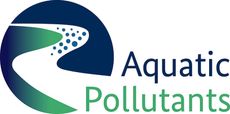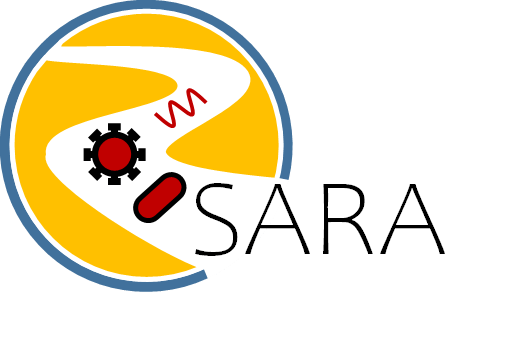
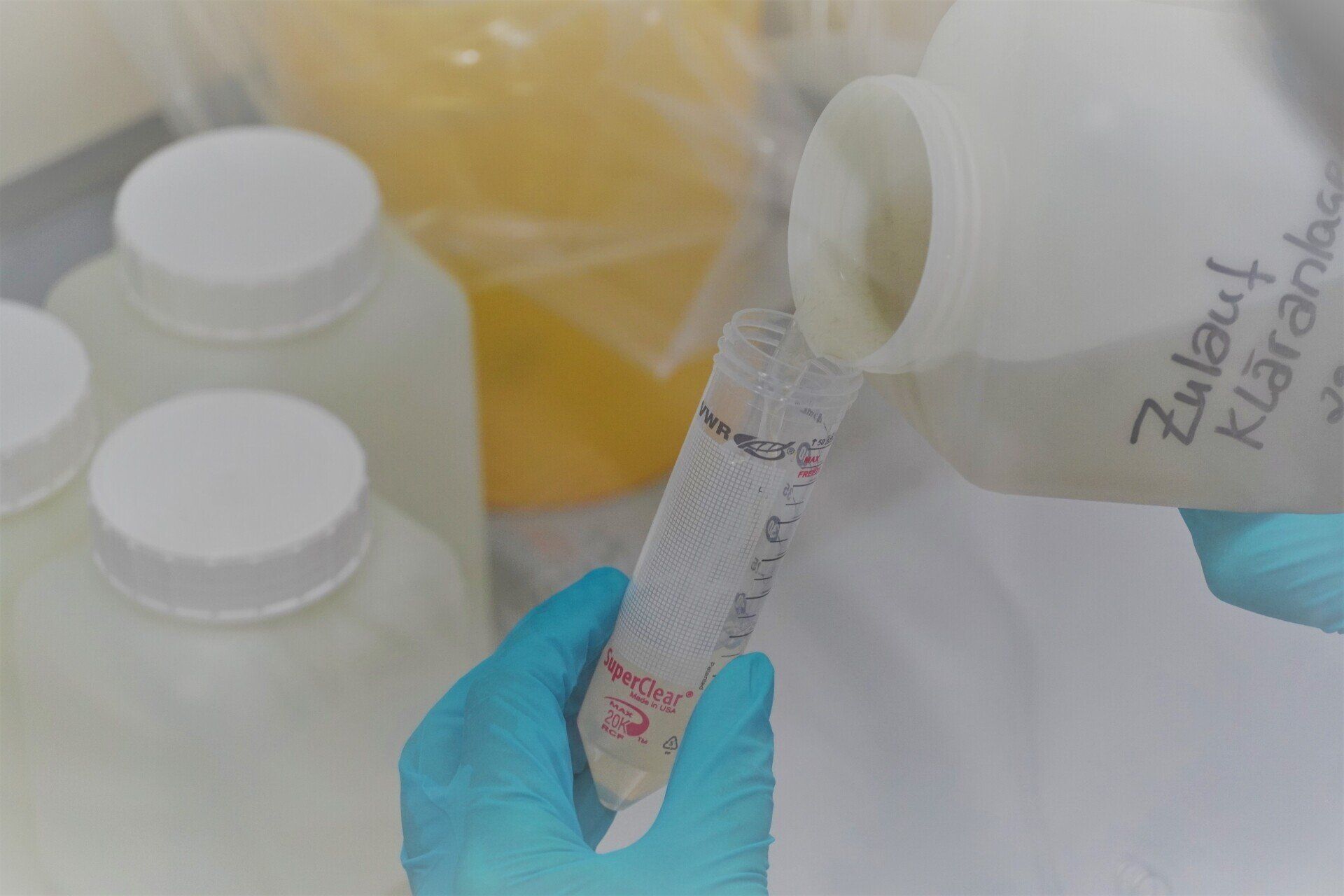
Research project SARA
Surveillance of Emerging Pathogens and Antibiotic Resistances in Aquatic Ecosystems
SARA is an international research project about microbial water quality in aquatic ecosystems with partners in Sweden, Germany, France, Spain, Portugal, Israel, Uganda and Mozambique. Appropriate methods for wastewater-based epidemiology and a better understanding of the fate of pathogenic viruses and antibiotic-resistant bacteria from the sources to river basins and estuaries are urgently required. The project will determine the prevalence of pathogenic viruses, microbial indicators, antibiotic resistance, and microbial source tracking markers in wastewater, surface water, coastal sea waters, sediment and bivalve molluscan shellfish in catchments located in different climate areas.

The SARA project team at the first project meeting at the University of Barcelona (UB)
Focus and Aims
What do we want to achieve
The project aims are:
(i) method harmonization and training of European and African partners,
(ii) SARS-CoV-2 detection in raw wastewater as a biomarker of COVID-19 cases,
(iii) enteric viruses, antibiotic resistances and MST markers monitoring in aquatic environments,
(iv) evaluation of sediments and BMS as integral reservoirs, (v) determination of the impact of climate and extreme weather events, and
(vi) microbial risk assessment for water resources.
Results and recommendations will be transferred to the scientific community by peer-reviewed papers and conference presentations. International health and environment organizations as well as authorities and waterworks that represent end-users on a global, European and African level will participate in the Stakeholder Forum.
Water quality
Our mission is a high and sustainable water quality
Wastewater treatment plants are designed to reduce the concentration of pollutants and to avoid the direct discharge of wastewater into rivers and oceans. However, conventional wastewater treatment is not sufficient to entirely remove biological contaminants. Fecal microorganisms, including pathogens, are released with treated wastewater into rivers and are possibly subjected to inactivation while being transported downstream.
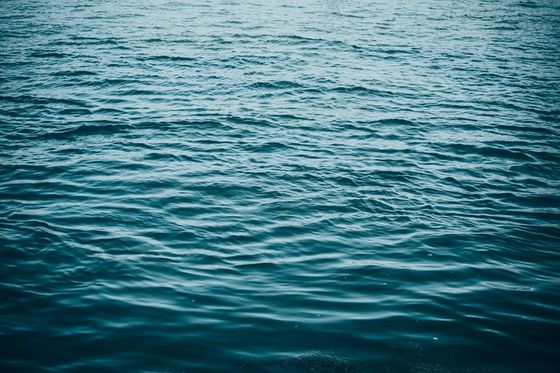

Background and details
More in-depth information about SARA
The analysis of the microbiological quality of water is an essential step for identifying the sanitary and environmental risks caused by faecal contamination. Assessment of the entire range of pathogen microorganisms is difficult and expensive, so microbial indicators are typically used for water quality management. However, research has shown that monitoring faecal indicator bacteria may not provide sufficient public health protection given that viruses have different persistence, survival and transport rates in water bodies.
Study and sampling areas
From source to estuaries
Since the environmental and geographical conditions will influence the spread of the emerging pathogens in the environment, ecosystems from different geographical areas are sampled to be examined. Samplings will be taken from source to rivers and estuaries.
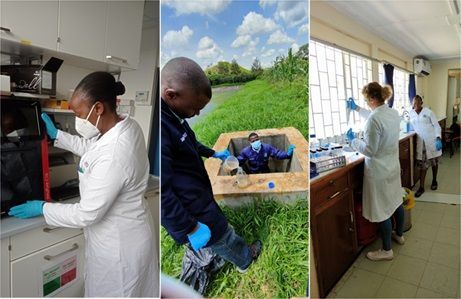
Training of African partners
Capacity development is a core function of the planned project
Particular attention is paid to capacity building of the African partners. Special trainings of the Ugandan and Mozambican researchers and lab technicians were performed at IST and TZW. Before installing the new equipment, African partners participated on fieldwork and analysis of samples with similar equipment either in Germany and/or Portugal. After installing the new equipment in Mozambique and Uganda, researchers and lab technicians from Germany provided support for quality management. Training in Africa included permanent staff of African partners to obtain sustainable capacity building at the partner universities.
Advisory Board
An international advisory board supports the project
The members of the Advisory Board are experts in health-related water microbiology and have already cooperated successfully with the project partners in several projects. The discussion of the results in this international circle provides a clear benefit for the study design and contributes to the classification of the data collected in the project in a global context.
Members of the board are:
Prof. James Bartram
University Leeds, UK and North Carolina at Chapel Hill, USA
previous head of the World Health Organisation Water and Sanitation group
Prof. Paul Hunter
University of East Anglia, Norwich Medical School, UK
member of the Water Security Research Centre, member of the research groups “Epidemiology and Public Health” and “Public Health and Health Services”, coordinator of the EU project Aquavalens
Prof. Anne Roiko
Griffith University, School of Pharmacy and Medical Sciences, Australia
QMRA expert, member of the IWA specialist group HRWM - QMRA
Dr. Jakob Ottoson
Swedish Food Agency, Department of Risk Benefit Assessment, Sweden
expert on risk assessment
Objectives and structure
Enteric viruses
Evaluate the presence of the selected enteric viruses in the different sampling locations and water matrices, improvement of knowledge on the effect of extreme events (prolonged periods of drought or heavy rain) on the deterioration of water quality, comparison of presence and quantification of enteric viruses with bacterial indicators, assessment of usefulness of coliphages as indicators for enteric viruses, and determination of the predominant norovirus genotypes in the different study sites.
SARS-CoV-2
Monitoring of SARS-CoV-2 in wastewater, monitoring of SARS-CoV-2 in surface water, investigation of SARS-CoV-2 infectivity, and refinement and implementation of a model to estimate total infections in the population.
Antibiotic resistance
Monitoring of the occurrence and fate of key antibiotic resistant bacteria (ARB) and antibiotic resistance genes (ARGs) in aquatic environment, study the dynamics of ARGs and ARB in Europe and Africa, determination of the impact of climate and extreme weather events on the occurrence and dissemination of antibiotic resistance, identification of ARGs in plasmids and determination of the dissemination potential of ARGs by conjugation and evaluation of the prevalence of key ARGs in non-bacterial fractions from the water environment – extracellular DNA and bacteriophages.
Microbial source tracking
Study the occurrence and fate of MST markers in different aquatic environments, identification of potential new MST markers based on digital metagenomic analysis, and identification of relationship between MST markers, SARS-CoV-2, enteric viruses and antibiotic resistances.
Sediment and BMS for integrated monitoring
Adaptation of the investigation methods with regard to the sediment matrix, monitoring bivalve molluscan shellfish (BMS) and sediments for viruses, E. coli, MST markers and antibiotic resistance and evaluation of BMS and sediment as time integrating parameters.
Climate change
Training and capacity-building of partners, establishing laboratory devices at African partner’s labs, organizing summer schools for students, dissemination of results to the scientific community, and dissemination of results to the end-user community.
Harmonization of sampling
Method harmonization for detection and quantification of enteric viruses, antibiotic resistances and microbial source tracking (MST) markers. Compilation of background information on the different areas under investigation, defining the best practices for sampling, Booklet of harmonized methods is available for download here
QMRA and Monitoring
Implementation of a quantitative microbial risk assessment (QMRA) and provision of recommendations for monitoring parameters.
Training and dissemination
Training and capacity-building of partners, establishing laboratory devices at African partner’s labs, organizing summer schools for students, dissemination of results to the scientific community, and dissemination of results to the end-user community.
Project coordination
Management of the consortium such that project deliverables are produced on time, revision and assessment of project results and progress towards the objectives, organization of project meetings, and creation and organization of an external Advisory Board and Stakeholder Forum.
Partners
International project for a global topic
SARA includes project partners from Sweden, Germany, France, Spain, Portugal, Israel, Mozambique and Uganda.
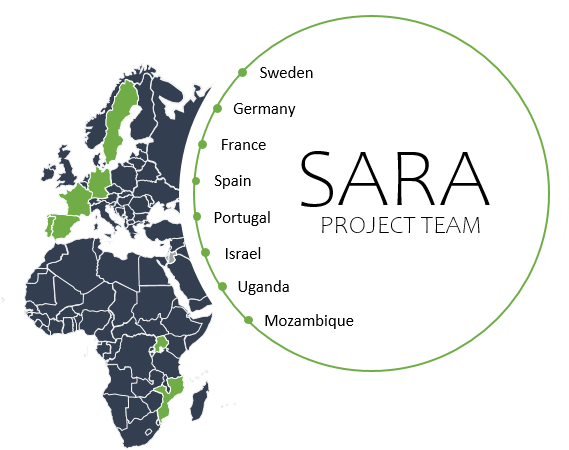
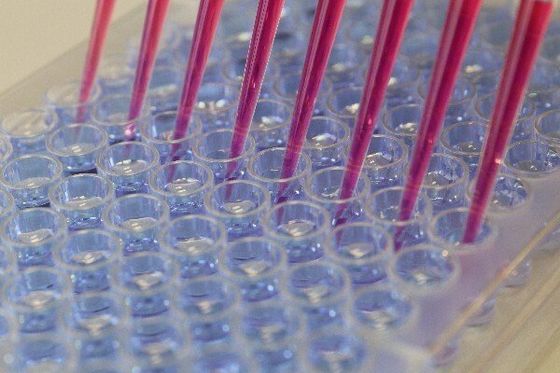
Funding
The SARA project is funded as part of the JPI Aquatic Pollutants initiative (2021 – 2024). In our partner countries the project receives funding from various organsations and ministeries.
Contact
SARA project
c/o TZW: DVGW-Technologiezentrum Wasser
Karlsruher Straße 84
D-76139 Karlsruhe
Germany
contact@sara-project.info

